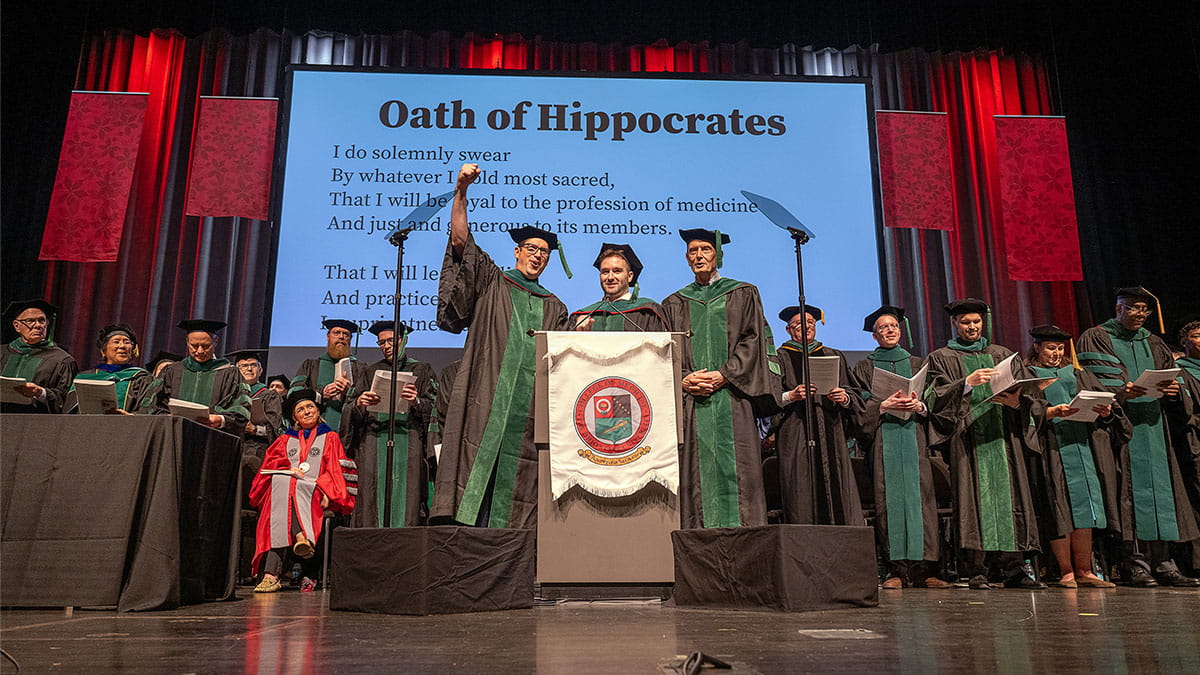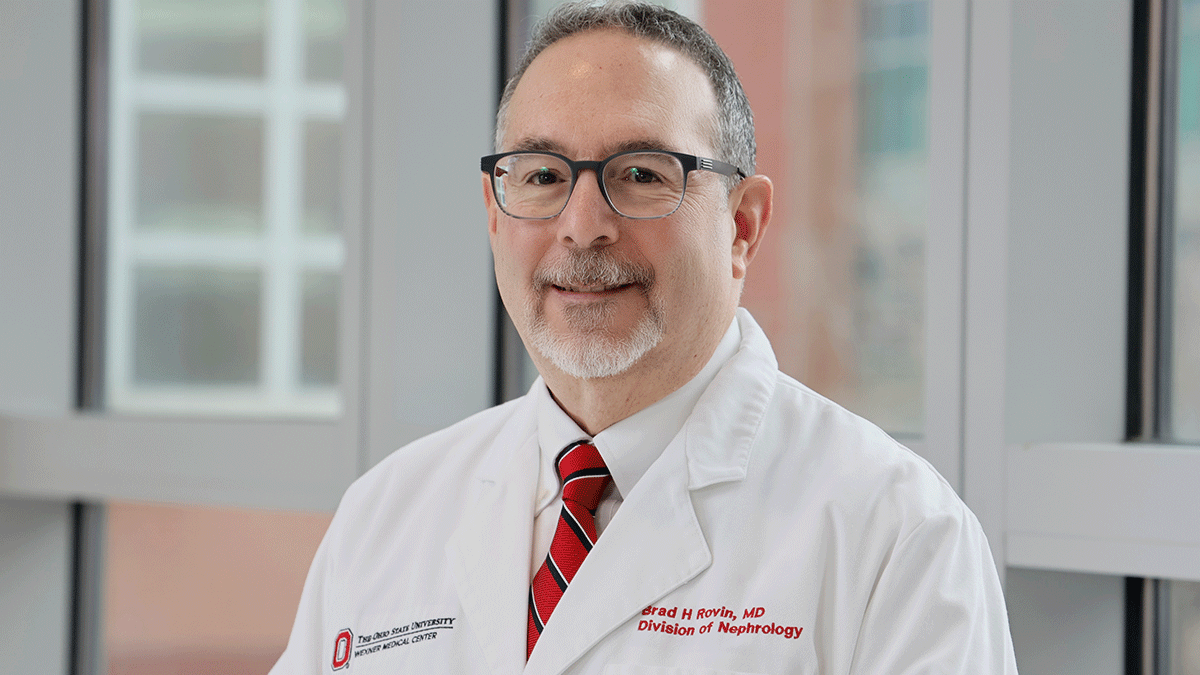Ohio State is harnessing AI to revolutionize health care

To cement its role as a national hub for artificial intelligence (AI) research, industry and entrepreneurship, The Ohio State University recently launched the AI(X) Hub, a brain trust spanning 15 colleges that converges subject matter experts, AI scientists and learners to solve complex problems through high-impact innovation.
Xia Ning, PhD, FAMIA, FACMI, and Raghu Machiraju, PhD, both professors of biomedical informatics in The Ohio State University College of Medicine and of computer science and engineering in The Ohio State University College of Engineering, have been asked to co-lead one of the six strategic pillars: AI for Health. Together, they will work with the AI(x) Hub leadership and also the seven health sciences colleges in The Ohio State University Wexner Medical Center, to build a transformative research and education ecosystem for AI in health care and in biomedicine.
“By uniting Ohio State’s world-class AI infrastructure with the health sciences colleges’ strengths in research and management for high-burden diseases, we will deliver effective, ethical and personalized AI solutions.” Dr. Ning says. “We aim to bridge the gap between AI research and its application in health care, ultimately shaping the future of AI-powered health innovation and patient care.”
AI for Health’s primary goal is to accelerate biomedical innovation, translate AI breakthroughs into real-world health impacts and train the next generation of scholars to be equally comfortable in developing and using AI models for prevailing problems in the health sciences. Dr. Machiraju says building this new framework will bridge the existing gap between AI’s promise and the rapid translation of scientific breakthroughs, impacting patient outcomes.
“This will foster a closer scientist-AI-clinician collaboration, and revolutionize diagnosis, treatment and drug discovery for the benefit of communities in Ohio, across the nation and around the world,” Dr. Machiraju says.
The collaborative effort of the AI(X) Hub to build the next generation of AI leaders across the institution includes the hiring of 100 faculty members over the next five years. Equipping researchers with advanced tools and expanded capabilities will speed up the development and delivery of products and services, from medical diagnostics to sustainable agriculture, that will fuel economic growth and create lasting societal benefits.
Drs. Machiraju and Ning’s vast expertise in building and using data and informatics tools is evident in the varied roles they hold. Dr. Ning is the division chief of Artificial Intelligence in Digital Health, the associate director of Biomedical Informatics at the Clinical and Translational Science Institute, a member of the Ohio State Comprehensive Cancer Center – Arthur G. James Cancer Hospital and Richard J. Solove Research Institute, and a faculty member in The Ohio State University College of Pharmacy. Dr. Machiraju serves as a professor of Pathology and is a member of the Center for Cancer Engineering.
As AI usage expands in health care, organizations are keeping pace. The American College of Radiology (ACR) has created the ARCH-AI (Recognized Center for Healthcare-AI) program, described by ACR as the first national artificial intelligence quality assurance program for radiology facilities. Because of its embrace of advanced tools and expanded capabilities to drive innovation, the Ohio State Wexner Medical Center recently was named as a recognized center by the ARCH-AI program.



